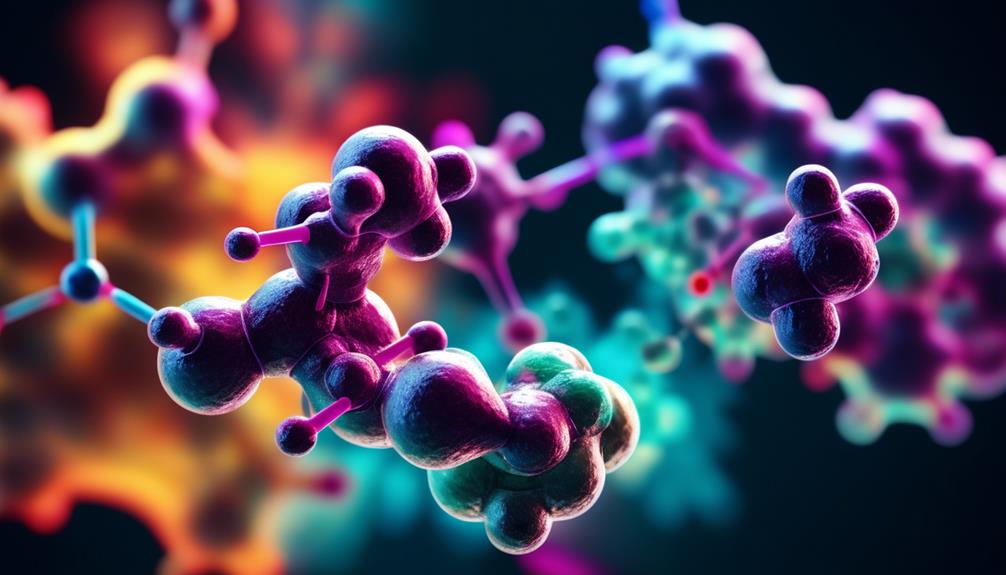The question of whether THCA gets you high when smoked is a topic that has sparked a great deal of curiosity and debate among cannabis enthusiasts. To understand the answer, it is crucial to explore the distinction between THCA and THC, the psychoactive compound responsible for the "high" associated with cannabis consumption. Additionally, we will delve into the process of how THCA is converted into THC during smoking and examine the potential factors that can influence the intensity of the high experienced. Furthermore, we will discuss the other potential benefits that smoking THCA may offer. So, let's embark on this exploration and shed light on the intriguing world of THCA and its effects when smoked.
Key Takeaways
- THCA does not produce psychoactive effects on its own, but when exposed to heat, it converts to THC, the main psychoactive compound responsible for the intoxicating effects of cannabis.
- The potential risks and long-term effects of THCA consumption are not fully understood, as limited research has been conducted on its specific effects.
- Factors such as dosage, method of consumption, temperature, individual physiology, and tolerance levels can influence the intensity and experience of the high from smoking THCA.
- In addition to its potential psychoactive effects, smoking THCA may offer other benefits such as anti-inflammatory properties, neuroprotective effects, and relief from conditions like arthritis or inflammatory bowel disease. Different consumption methods like vaporizing or ingesting THCA in tincture or edible form can provide alternative effects and benefits. Consulting healthcare professionals and adhering to local regulations are important for safe and legal use of THCA for medicinal purposes.
The Difference Between THCA and THC

THCA and THC are two distinct chemical compounds found in cannabis, each with their own unique properties and effects. While THC is the psychoactive compound responsible for the intoxicating effects of cannabis, THCA is the non-psychoactive precursor to THC that is found in raw cannabis plants.
One of the key differences between THCA and THC is their chemical structure. THCA stands for tetrahydrocannabinolic acid and is found in the raw, unheated cannabis plant. When exposed to heat, THCA undergoes decarboxylation and converts into THC. This process occurs through the removal of a carboxyl group from the THCA molecule, resulting in the formation of THC. This chemical transformation is why heating or smoking cannabis activates the psychoactive effects associated with THC.
In addition to their different chemical structures, THCA and THC also have distinct effects on the body. THC is known for its psychoactive properties, which can result in feelings of euphoria, relaxation, and altered perception. On the other hand, THCA does not produce these psychoactive effects and is considered non-intoxicating.
While THC has been studied extensively for its medical benefits, research on THCA is still in its early stages. Preliminary studies suggest that THCA may have anti-inflammatory, neuroprotective, and antiemetic properties. It is believed to have potential therapeutic applications for conditions such as arthritis, epilepsy, and nausea.
How THCA Is Converted to THC During Smoking
During the process of smoking cannabis, the chemical compound THCA undergoes a transformation into the psychoactive compound THC. This conversion process occurs due to the heat applied during smoking, which triggers a series of chemical reactions.
When cannabis is heated, such as through the act of smoking, the heat causes a decarboxylation reaction to take place. This reaction involves the removal of a carboxyl group from the THCA molecule, resulting in the formation of THC. The carboxyl group is a carbon atom double-bonded to an oxygen atom, with an additional oxygen atom attached through a single bond. By removing this group, the THCA molecule is converted into THC.
The heat applied during smoking activates the decarboxylation process, enabling the conversion of THCA to THC. This occurs most effectively at temperatures between 220 and 235 degrees Celsius (428 to 455 degrees Fahrenheit), which is within the range typically reached during smoking.
It is important to note that the conversion of THCA to THC is crucial for experiencing the psychoactive effects associated with cannabis. THCA itself is non-psychoactive, meaning it does not produce the "high" typically associated with cannabis consumption. However, once converted into THC, the compound interacts with the body's endocannabinoid system, specifically the CB1 receptors, leading to various psychoactive effects.
The Potential Psychoactive Effects of THCA

The potential psychoactive effects of THCA have been a subject of scientific inquiry and debate among researchers and cannabis enthusiasts alike. While THCA itself does not produce intoxicating effects, it is believed to have certain properties that may influence the overall experience of using cannabis. Here are some key points to consider:
- THCA conversion: When THCA is exposed to heat, such as during smoking or vaporizing, it undergoes a process called decarboxylation, converting it into THC (tetrahydrocannabinol). THC is the main psychoactive compound responsible for the "high" associated with cannabis use.
- Potential risks: While THCA is generally regarded as non-intoxicating, it is important to note that the potential risks associated with its consumption are not yet fully understood. Limited research has been conducted on the specific effects of THCA, especially when used in high doses or in combination with other cannabinoids or substances.
- Long-term effects: The long-term effects of THCA on human health remain largely unknown. Studies have primarily focused on the therapeutic potential of THCA, such as its anti-inflammatory and neuroprotective properties. More research is needed to determine any potential adverse effects of prolonged THCA use.
It is worth mentioning that individual responses to THCA may vary, as factors such as dosage, method of consumption, and personal physiology can all influence the overall psychoactive effects experienced. As with any substance, it is important to approach cannabis use with caution and to be mindful of potential risks. Further research is needed to fully understand the effects of THCA and its implications for long-term use.
Factors That Can Influence the High From Smoking THCA
Factors such as dosage, method of consumption, and individual physiology can significantly influence the psychoactive effects experienced when smoking THCA. Understanding these factors is crucial in determining the potency and duration of the high one can expect from smoking THCA.
The dosage of THCA plays a key role in the intensity of the high. Higher doses are more likely to result in stronger psychoactive effects. However, it's important to note that THCA is not as potent as THC, so higher doses may be required to achieve the desired effect. Additionally, individual tolerance levels can vary, meaning that what might be a moderate dose for one person could be overwhelming for another.
The method of consumption also affects the potency and duration of the high. When smoking THCA, the heat applied during the process converts THCA into THC, which is the compound responsible for the psychoactive effects. The temperature at which THCA is heated can impact the conversion rate and, consequently, the potency of the high. Higher temperatures may result in faster and more complete conversion, leading to a stronger high.
Individual physiology also plays a significant role in the experience of smoking THCA. Factors such as metabolism, body weight, and overall health can influence how the body processes and responds to THCA. Individuals with a faster metabolism may experience a shorter duration of high, while those with a slower metabolism may experience a longer-lasting effect.
Exploring Other Benefits of Smoking THCA

Smoking THCA offers a range of potential benefits beyond its psychoactive effects. While the primary focus of THC is often its ability to produce a high, it is important to explore the medicinal properties and alternative consumption methods of THCA.
Here are three potential benefits of smoking THCA:
- Anti-inflammatory properties: THCA has been found to exhibit strong anti-inflammatory properties, which may make it beneficial for individuals suffering from conditions such as arthritis or inflammatory bowel disease. By reducing inflammation in the body, THCA may help alleviate pain and improve overall well-being.
- Neuroprotective effects: Research suggests that THCA may have neuroprotective properties, meaning it could potentially protect the brain from damage caused by conditions like Alzheimer's disease or traumatic brain injury. These findings are still preliminary, but they provide promising avenues for further exploration.
- Anti-emetic properties: THCA has shown promise as an anti-emetic, meaning it may help alleviate nausea and vomiting. This could be particularly beneficial for individuals undergoing chemotherapy or experiencing severe motion sickness.
Exploring the medicinal properties of smoking THCA opens up new possibilities for its use as a therapeutic agent. However, it is worth noting that there are alternative consumption methods available, such as vaporizing or ingesting THCA in tincture or edible form. These methods may offer different effects and benefits compared to smoking, providing individuals with more options to customize their experience based on their specific needs.
As research in this area continues to expand, it is important to consult with healthcare professionals and adhere to local regulations when considering the use of THCA for medicinal purposes.
Frequently Asked Questions
Can You Get High From Smoking Thca?
When discussing the potential health benefits and legality of THCA, it is important to consider the question of whether or not it can produce psychoactive effects when smoked.
What Are the Differences Between THCA and Thc?
The differences between raw cannabis and decarboxylated cannabis lie in the presence of THCA and THC. While THCA does not produce psychoactive effects when smoked, it holds potential medicinal benefits that warrant further research.
How Does THCA Convert to THC During Smoking?
The conversion of THCA to THC during smoking is a complex process that involves the decarboxylation of THCA into THC. This conversion allows THC to bind to cannabinoid receptors in the brain, resulting in psychoactive effects commonly associated with marijuana use.
What Are the Potential Psychoactive Effects of Smoking Thca?
The potential psychoactive effects of smoking THCA are still under investigation. While THCA does not directly produce a "high" when smoked, it may have potential medicinal benefits and long-term effects that warrant further research.
What Factors Can Influence the High Experienced From Smoking Thca?
Factors such as strain potency, method of consumption, and individual tolerance can greatly influence the psychoactive effects experienced when smoking THCA. Understanding these influencers is crucial in determining the potential high one may experience.
Conclusion
In conclusion, smoking THCA does not directly produce a psychoactive high. The conversion of THCA to THC occurs through decarboxylation, which typically requires heat. Once converted, THC is responsible for the intoxicating effects typically associated with cannabis use. However, it is important to note that the potential psychoactive effects of THCA can vary depending on individual factors and the specific strain of cannabis being consumed. Furthermore, smoking THCA may offer other potential benefits beyond getting high, such as potential anti-inflammatory and neuroprotective properties.

